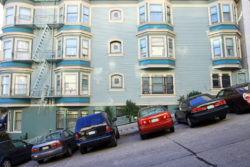Top Class Actions’s website and social media posts use affiliate links. If you make a purchase using such links, we may receive a commission, but it will not result in any additional charges to you. Please review our Affiliate Link Disclosure for more information.

The Honda Civic parking brake lawsuit is seeking to represent the claimant and other Class Members, who allegedly sustained serious vehicle damage from the defective parking brakes.
Plaintiff Heather F. filed this Honda Civic parking brake lawsuit in December 2017, soon after discovering that Honda had issued a recall of their 2016 Civic models for an alleged parking brake defect. She alleges this problem has also been reported in 2017 and 2018 models.
According to the Honda Civic parking brake lawsuit, Heather had bought a 2017 Honda Civic EX hatchback in October 2016 after shopping around for a safe vehicle for herself and her daughter.
During this time, Honda was allegedly aware of the rollaway issue with later Honda Civic models, but Heather says the company failed to disclose this information to her or other consumers.
Overview of Rollaway Defect
A rollaway can occur when the electronic parking brake fails in certain 2016-2018 Honda Civic models. It has been found that the software in the Vehicle Stability Assist Electronic Control Unit may have a defect that interferes with the electronic parking brake if the driver applies it right after the ignition is switched off.
When the electronic parking brake is disengaged, the car is in danger of rolling down hills or into other areas of potential oncoming traffic. This was allegedly the case for Heather on July 14, 2017, who had returned home and thought her parking brake would engage after she turned off her car. But as she was cleaning out the rear seat of her car, she claims, the vehicle started rolling backward and into a neighbor’s tree.
Heather says she was severely traumatized and sustained serious bruising to her arm and hip. Several days after the accident, she says she contacted Honda’s corporate customer service department. She says the company was initially apologetic for and even offered to conduct expert testing on the vehicle to cover her damages.
Furthermore, the Honda representative had also informed Heather that other drivers had suffered similar rollaway incidents. Heather says she responded by asking Honda to buy back and replace her vehicle, after which Honda had reportedly changed its position.
According to the Honda parking brake lawsuit, the company had denied her claim and told her it would not buy back her vehicle during a followup call. Heather then filed legal action, alleging Honda had broke its minimum safety standard obligation to its customers.
Honda issued a recall in October 2016 of certain 2016 Honda Civic models with electronic parking brake systems. The recall affected approximately 350,000 2016 Honda Civic models, consisting of both two-door and four-door 1.5L and 2.0L vehicles.
According to the Honda Civic parking brake lawsuit, the 2016 Honda Civics recalled are “virtually identical” to 2017 Honda Civics and any 2018 Honda Civics manufactured with the rollaway defect.
More recently, two other owners filed another Honda class action lawsuit, alleging their Civics are also at risk for rolling away.
This Honda Civic Parking Brake Lawsuit is Case No. 2:17-cv-08744, in the U.S. District Court of Central California.
Join a Free Honda Civic Parking Brake Lawsuit Investigation
You may qualify to file a Honda Civic class action lawsuit under the following circumstances:
- You owned or leased a 2016, 2017 or 2018 Honda Civic.
- The vehicle rolled away after it was put in “park.”
ATTORNEY ADVERTISING
Top Class Actions is a Proud Member of the American Bar Association
LEGAL INFORMATION IS NOT LEGAL ADVICE
Top Class Actions Legal Statement
©2008 – 2024 Top Class Actions® LLC
Various Trademarks held by their respective owners
This website is not intended for viewing or usage by European Union citizens.














